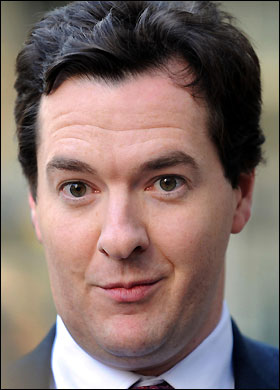566: Brexit for Property Investors - Threats
04-01-2016
 PropertyInvesting.net team
PropertyInvesting.net team
Economy in Bad Shape: The UK economy has been in pretty bad shape ever since the last Labour government squandered and overspent its way into trouble. The Tory government in 2010 started to re-balance the economy with austerity measures simply because the UK was technically bankrupt and it could no longer afford to pay massive public sector costs whilst the tax paying private sector shrivelled away. It’s simply not possible to “spend your way out of trouble” - economics does not work like that.
Worsening Since Late 2015: Things were beginning to look quite a bit brighter with rising employment, lowering unemployment, low inflation and rising wages through to the end of 2015, but things have taken a bad turn recently. The Tories timed the economic mini-boom - particularly in the housing market - to perfection for themselves and their votes. We will explain.
Oil Price: Firstly, the immediate positive impact on consumers of the oil price crash from $110/bbl in July 2014 to $30/bbl mid 2015 has worn off and been muted partly by the massive petrol tax burden the UK consumers already pay.
North Sea Oil Revenues: Meanwhile North Sea revenues have crashed to around 10% of levels 3 years ago – oil production levels have also collapsed from 1999 onwards off the back of three successive draconian tax increases by Labour (two) and Tory (one) governments. This has lost 30,000 jobs since mid 2014 mainly in Scotland. The North Sea oil industry has died – and no one seems to gives any regard to this in Westminster. Current no exploration drilling rig is operating in in the UK sector of the North Sea - zero exploration activity.
European Faltering: The European economy has faltered which has caused economic headwinds and the UK recorded this month it's highest ever trade deficit – totalling 7% of GDP. This is partly caused by Sterling’s 9% decline since October 2015.
Brexit Threat Insecurity: We now have the spectre of a potential EU exit which would frankly be catastrophic for business as our relationship with our largest trading partner – mainland Europe – unwinds over a 10 year period. The uncertainly has already badly affected Sterling and borrowing costs are starting to edge higher because of the financial uncertainty.
Northern Depression: The north of England, Wales and Scotland have been in a depression since 2008 – their meagre house price increases are evidence of this. very few people can afford to purchase properties because wages are so low, job security tenuous, prospects poor and large areas are suffering de-population to cities and regions in the south of England. Despite low house prices in the north, people still cannot afford to purchase - or find the risks too high. The term “Northern Powerhouse” is a joke – the closing of Britain’s steel plants is another example of the terminal decline of UK manufacturing, the North Sea is another example. A Brexit would hit these areas particularly hard – as borrowing costs would rise and stifle economic activity even further. The high energy cost burden puts UK manufacturing at a big disadvantage compared to mainland Europe.
 Sequence of Events: If the UK voted to Brexit – we believe the following would happen:
Sequence of Events: If the UK voted to Brexit – we believe the following would happen:
· Five years of uncertainly would hamper business confidence and investment
· Sterling would crash at least 20% from its current low level against the Euro and Dollar
· Inflation would start to rise sharply as import costs rose
· Interest rates would have to rise to control inflation and defend Sterling’s value
· The trade deficit would rise sharply
· The budget deficit would rise sharply
· Sterling would then drop further – a viscous circle
· Oil prices would rise – in dollar terms
· Property prices would drop sharply or crash
· Rental demand would drop as EU workers left London and England
· Unemployment would rise
· The SNP would demand another Referendum – particularly if they were assured they would be allowed back into the EU (albeit this might be unlikely because of the decline in oil revenues)
· Labour may seize on the chaos and could get voted in by 2020
· Business would then deteriorate faster as the deficit worsened – once Labour increased taxes and started spending huge amounts of money they did not have with socialist policies destroying any remaining confidence - house prices would crash
 Common Sense: We rather think sense is most likely to prevail – as the risks are just too high – and people won’t want to risk jobs and the economy on the Brexit experiment. Boris Johnson’s bid to become Prime Minister seems to rest on a Brexit which is sad, since we think it was more likely he would get the top PM job if he helped his friend David Cameron instead of side against him in a shock move.
Common Sense: We rather think sense is most likely to prevail – as the risks are just too high – and people won’t want to risk jobs and the economy on the Brexit experiment. Boris Johnson’s bid to become Prime Minister seems to rest on a Brexit which is sad, since we think it was more likely he would get the top PM job if he helped his friend David Cameron instead of side against him in a shock move.
Safe Haven: The optimists seem to think London and the UK would become some sort of offshore safe haven – with developing economic relations with the Commonwealth countries and the USA. There would certainly be less silly EU regulations and law but we believe many international investors would shy away from investing in the UK because of Sterling’s decline and rising economic risks. Certainly we think it would send London property prices down and interest rates would rise and inward investment would slow – London would become far less of a preferred place for the global super-rich to live. This would negatively impact the whole UK economy - particularly in SE England. Post Brexit, the UK would in our view certainly not be a financial safe haven.
Dividing the Tory Party: A key concern is how the Brexit debate is dividing the Tory party – just went it looked  like Labour was self-imploding on itself. Now we have two self-imploding parties, one in power and the other in opposition. In reality it’s difficult to see Labour getting into power without their Scottish votes and we don’t think these are coming back since SNP has it sewn up, but the more Tories in-fight the more chance the electorate may take the economically foolish route of either voting for a Brexit or voting for Labour. These are all very important concerns for Landlords – since property investors have already been hammered by the Tories with successive tax rises since March 2015 and a Brexit would ruin any remaining vestiges of profitability their might be in property – with a Labour victory being the que to getting out as soon as property investors could before further waves of tax rises came their way. The upside is that people vote against a Brexit, the Tories quickly repair their strained relations then focus on the divided Labour party – and by end 2016 all could be back on track, with the SNP not wanting another Referendum because they may get kicked out of the EU for having such large deficits now the oil revenues have crashed (note: oil revenues are now only 10% of what Alex Salmond was promising a few years ago – shame on him – as an ex-professional oil economist).
like Labour was self-imploding on itself. Now we have two self-imploding parties, one in power and the other in opposition. In reality it’s difficult to see Labour getting into power without their Scottish votes and we don’t think these are coming back since SNP has it sewn up, but the more Tories in-fight the more chance the electorate may take the economically foolish route of either voting for a Brexit or voting for Labour. These are all very important concerns for Landlords – since property investors have already been hammered by the Tories with successive tax rises since March 2015 and a Brexit would ruin any remaining vestiges of profitability their might be in property – with a Labour victory being the que to getting out as soon as property investors could before further waves of tax rises came their way. The upside is that people vote against a Brexit, the Tories quickly repair their strained relations then focus on the divided Labour party – and by end 2016 all could be back on track, with the SNP not wanting another Referendum because they may get kicked out of the EU for having such large deficits now the oil revenues have crashed (note: oil revenues are now only 10% of what Alex Salmond was promising a few years ago – shame on him – as an ex-professional oil economist).
Risks for Property Investors: Sadly, it’s been a sorry sequence of Tory tax increases and uncertainly that will lead to massively increasing rental prices in future years and a worsening of the housing crisis. A Brexit would certainly dampen any remaining hope of keeping property an economic profitable business.
We hope this Special Report has helped give you some valuable insights into a Brexit and how this might affect investment and property owner. If you have any comment or queries, please contact us on enquirie@propertyinvesting.net

